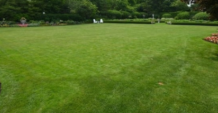After the holidays, many municipalities allow old Christmas trees
to be placed curbside. Trees are then collected and ground up for mulch
or burned. If you miss the designated date, or your trash collector
doesn’t accept trees, there are several options to prolong the useful
life of the tree.
An old Christmas tree can be used to benefit birds, fish, and the
landscape by placing it in a corner of your deck, and spreading some
birdseed nearby, or tying it to a deciduous tree or post near a bird
feeder. The birds benefit from having escape cover nearby when hawks or
cats threaten, and the dense boughs reduce the wind chill on a cold night.
Sinking your Christmas tree in a pond is an easy way to improve
fish habitat and fishing. The tree serves as little coral reef, in that
the branches provide substrate for water plants to grow, and cover for
minnows and other forms of small aquatic life. Larger fish are drawn by
the shade and the presence of prey.
How do you sink a tree? Tie the base to a cinder block with a
short, stout rope, and toss it in. Just be sure to get permission from
the pond owner first! Using the little tree around the landscape
requires clipping off all of the branches. Use the boughs to add extra
insulation around semi-hardy perennials or to trees and shrubs that were
recently planted. The leftover trunk may be used as a garden stake next
spring.
Or cut and let it dry for a few weeks, and you will have some easy
lighting firewood. Just beware that most conifer species tend to spark
and pop more than hardwoods, as resin pockets in the wood make tiny
explosions. This can delight the youngsters, but for safety’s sake, keep
an eye on the fire when burning Christmas tree logs!
by Charlie Barden




